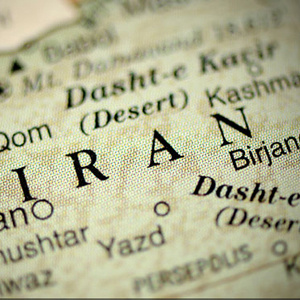Amano’s New Nuclear Complaints, and Points Missed

Although in form it may appear much like others of its ilk in its ambiguity, Yukiya Amano’s latest report is harsher in tone and it makes more direct, yet unproven accusations against Iran. Barring two IAEA expert inspectors from continuing their inspections in Iran, breaking IAEA seals on the low-enriched uranium [LEU] stockpile, and the existence of unrevealed nuclear facilities are Amano’s latest complaints.
The report addresses and objects to the barring admission of the two IAEA inspectors. It does not seem reasonable though. As a sovereign state, Iran has the right to admit or reject IAEA inspectors for specific reasons. The IAEA, on the other hand, has supported their qualification, claiming that that they are hard to replace.
The IAEA’s nagging has little legal value however, as Iran’s right is acknowledged by the same rules and regulations that the IAEA asserts in its right to inspect Iran’s nuclear facilities. Based on the IAEA charter, the sovereignty of no country should be breached, so Iran has merely actively applied its right to protect its nuclear information and preclude possible leakage of it. Moreover, IAEA inspectors do not have a tenable record when it comes to inspections. Some UNSCOM [United Nations Special Commission] personnel were accused of spying for the CIA during their inspections in Iraq in the 1990s.
Iran’s suspicion toward certain inspectors should not distress the IAEA. Iran has not charged them with espionage, but has mentioned imprecise reports. From tens of nuclear inspectors who have visited Iran’s nuclear facilities to date, Iran has merely singled out two. The IAEA should stop complaining.
Meanwhile, following the line of his predecessor ElBaradei, Amano states that the nuclear sites open to inspection proves no military activities; nevertheless, the IAEA cannot have the same conviction about facilities it has not been granted access to.
The IAEA claims that it cannot assure the international community about the non-deviation of Iran’s nuclear program. Thus, it is insisting that Iran ratifies and abides by the Additional Protocol. Although optional, signing the protocol has been the IAEA’s earnest demand ever since the country came under accusation.
The UN nuclear watchdog is also concerned about unannounced nuclear facilities. In such cases, like the Fordo nuclear site near the city of Qom in central Iran, Tehran argues that nuclear enrichment, its alienable right, can be jeopardized by a likely Israeli assault if the locations of nuclear sites are revealed before their completion. Iran believes there is no need to inform its enemies where and when to attack.
A basic difference between Iran and the IAEA is a disagreement over the older version of Code 3.1 of IAEA charter. According to the code, 6 months before injection of nuclear material into a nuclear site, the IAEA must be informed. The code has changed however, and the IAEA must now be informed when a decision is made to construct a new nuclear site.
But Iran argues that since it has not ratified the Additional Protocol, it finds no reason to inform the nuclear watchdog. This is the basis of arguments and counter-arguments: the IAEA says that Khatami’s government signed the protocol, and Tehran responds that the parliament has not ratified the agreement—its duty under the constitution in order to make it binding. The IAEA refers to precedents that had no parliamentary confirmation, but Iran believes that the previous erroneous routine should not be necessarily repeated.
We should wait to see what the consequences of the IAEA’s fresh accusations against Iran are. The big difference today is that China and Russia are no longer standing by Iran’s side.
Sadegh Rabbani is former head of Iran’s Organization of Atomic Energy.

